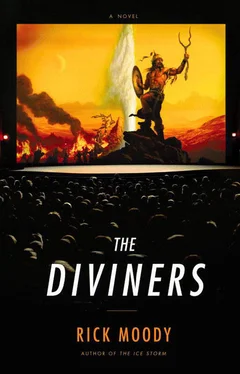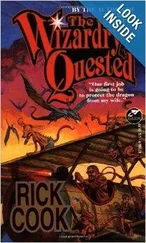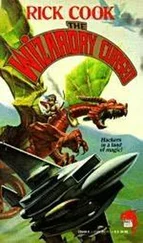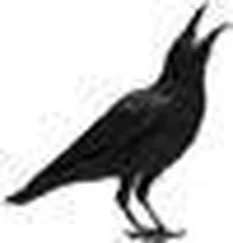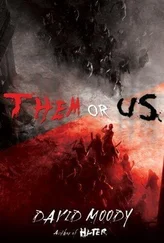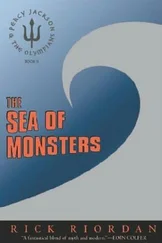Her mother says, “Don’t say these things to her. She is ill.”
And her father says, “Why shouldn’t I say these things? I’m not going to sugarcoat things while she is learning what she has to learn, because then she’ll get the wrong ideas.”
Samantha has more questions. Was she a happy person? She was a mostly happy person. And was she happy growing up, wherever it was she grew up? She grew up in the suburbs west of Philadelphia and yes, she was happy as a child, if a little shy. Who was her last boyfriend, because she can almost remember, she can remember things about him, or at least she can remember things about being next to his body, a body next to hers, and she can remember something about the joy of being next to another body, and there is no such feeling here in the hospital, which, though it is full of people and family, is a lonely place. Her last boyfriend, she is told, was a packager and transporter of art. Or, as her father seems to want to say, despite her mother’s diplomacy, he drove a moving truck. When did her parents meet? Her parents met a long time ago. How come she doesn’t have any siblings? Because they were not able to conceive any more babies. And do her parents still love each other? Of course. And why is everyone staring at her, wherever she goes in the hospital? Because she was in the newspapers a lot. Why was she in the newspapers? Because of the nature of the crime. And is she still in the newspapers? Sometimes. And who was the person the police believed committed the crime? This person was named Duffy. That was his last name? Yes, his name was William Duffy, but he preferred to be called Tyrone. The police believe that she was acquainted with this person, perhaps for some time.
At the sound of the name, something happens in her. It is as if a whole second window of consciousness opens up. It is the window onto ornament, onto all the things that are inessential on their surface, and yet, when this window is reopened, she wonders how she lived without it, because in here are consigned the memories with no names attached to them, such as riding down the FDR in a taxi at night with the windows open in spring. How beautiful this memory is, and how beautiful are the lights, and how excellent is the FDR Drive. Likewise, the memory of the leaves changing color in the suburbs in autumn, and the memory of ballet class as a girl, and what it felt like to lace up her toe shoes, and also the memory of the taste of ice cream, especially mint-chocolate-chip ice cream, which in her girlhood tasted like cough syrup, only better, and the smell of people’s lunch bags in elementary school, and what it felt like to have to climb the ropes in gym, which she always hated, and how she always liked to look at the cards at the back of library books as a girl, and the satisfying sound that a videocassette made the first time she ever fed one into a machine. These images come tumbling out at the sound of the name Tyrone, and she can’t attach a significance to any of them, except that she knows that they all belong to her, all these memories belong to her, and she doesn’t know why she forgot them, nor why they are returning now, except that they are followed by colors and light, and the only possible idea she has of all these things, as she thinks of them, is that they are paintings, and there are a thousand images of cracked bits of pottery and illuminated manuscripts, and then there are the flattened devotional images of medieval painting, and then there are the Madonnas, all the Madonnas and all the little babies with them, and then all the deposition altarpieces, and then there are the court paintings of the Enlightenment, and then there are the scenes of country life, and then there are the early photographs, and then there are the paintings of the Impressionist period, she sees them all, and then there are the Cubist paintings, and the Fauvist paintings, and then the provocations of Dada and Surrealism. It all comes back to her, that she was once an art historian, that this was what made her go to work at the gallery, that she loves all these paintings, including contemporary art, she loves the anarchy of the contemporary, paintings that are nothing more than colors hovering in front of her, like windows into the original quality of colors, drips and scratches and lines and nothing more, just color, and paintings based on soup cans, and paintings based on comic strips; somewhere in here she recognizes that the paintings she’s seeing are by Tyrone, as if the entire history of art that she’s remembering while her parents sit and watch her leads to the paintings by Tyrone Duffy, and his mangled books, as that’s what a lot of his work is, mangled text, words torn out of their context and made new again. She feels a sudden excitement at having unlocked the door to where all the things were stored, this door has been kept closed for so long, and maybe she didn’t even know these things before, maybe these are only things you can know when you come back from some really empty space, or that’s what it feels like today, that she’s had some kind of insight, because of her brain injury, for no other reason. She can’t read, she barely remembers anything from the past, she barely knows who her parents are, and she only knows her name because they keep repeating it to her, but she knows for certain that Tyrone didn’t use the brick on her; there was no way that Tyrone used the brick. She tells her parents, “It wasn’t Tyrone; that’s ridiculous. I had a big crush on Tyrone. . and. . and. . I think I was actually talking to him on the phone when I was hit, I think I was. . I think I was trying to get him to go out with me.”
He is Randall Tork, the greatest wine writer in history. He is the writer of innumerable wine articles and wine books, and the author of an eponymously named franchise of annual wine-collecting guides, the Randall Tork Guide for Discerning Collectors. He is popularizer of such terms as barnyard and gymnasium when used in the description of fine wines. He is the man who made the Battenkill vineyard what it is. He created its reputation; no one else did it, though many stake their claim. He’s the one who destroyed a popular sommelier at one of the French restaurants by spreading the rumor that this so-called professional had no sense of smell. He did it with glee. He cares nothing about his subjects, the vintners, not about their feelings, not about their multimillion-dollar investments. They are the enemies of true invention.
What he despises: the delusions of wine connoisseurs, how they actually believe that they can taste all those faint traces, tobacco and chocolate and toasted almond, how they defer to whatever costs the most and is most prized by the heirs and heiresses who haven’t spent a sober afternoon in forty-five years. The look in the eyes of wine collectors at the word Bordeaux makes Randall Tork want to drive forks into these eyes, and when he encounters these people at wine tastings, he invariably selects the “best” wine at random and then argues for the perfection of the vintage, saying that the rest of the region tastes as though it has formaldehyde in it, and he then adheres to the result unswervingly.
He wrote the column that is whispered about by every informed collector, the remarks in which he compared the entire run of 1997 California chardonnays to the actress Elke Murnaugh. Who could forget?
These wines are flabby in the way the cellulite bulges from the too-tight pouches of her nulliparous behind, they are fruity like the desserts that are favored by the disadvantaged children that Murnaugh and her never-to-be-mentioned partner take into their house so that she can be photographed leering, like a wine taster, surrounded by her brood, on the covers of celebrity weeklies. These chardonnays have the mouthfeel of neglected vaginas begging to be brought beseechingly out of retirement, musty, undeodorized, and sentimental. They have the aftertaste of excessive reuse of Lysol spray in the bovine bathrooms of salacious celebrities who are otherwise lax about germs, and they are garish like appalling Broadway productions, the casts of which are full of malnourished thespians who would do anything for a plug from her flatulent fabulousness. Have I neglected to mention the overused dance belts of Broadway dancers, ossified with eons of sweat and antifungals? These wines have hints of these exquisite tastes. And the so-called wine drinkers who favor these chardonnays are, like Murnaugh herself, pustular pretenders to the great tradition of wine producing who would never save a bottle of anything, who would drink a capful of cheap perfume and call it French wine, if only they have been told by some online sewing circle of hacks that they should do so. Let these Murnaugh urine specimens be drunk by the aforementioned imbeciles and then praised to the stars. Persons who use words like zippy, zingy, and fun should be lined up and shot, and perhaps their moldering remains will bring a more satisfying fermentation process to the creation of a wine than we find in this repellent grape.
Читать дальше
